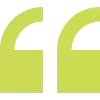
SUCCESS STORY
The challenge of integrated ESG reporting: how Diaphane supports the Raben Group in creating precise and reliable sustainability reports.
160
Branches
15
Countries
12000
Employees
CLIENT HISTORY
Conducting a Sustainable Business
The Raben Group is one of the leaders in the logistics industry, operating in 15 European countries and providing services in warehousing, domestic and international transport, sea and air freight, and intermodal transport. The company is made up of a team of 10,000 people who share the same values, commitment, and passion.
Minimizing the negative impact on the environment, fostering internal relationships, maintaining a responsible supply chain, and continuing collaboration with key stakeholders are as important to Raben as financial performance and market expansion. The company firmly believes that every mile traveled on behalf of its clients brings everyone closer to a better future.
To effectively support these goals, the Raben Group adopted its Sustainability Strategy for 2021-2025 in 2021.
As a leader in the TLS sector, Raben actively works to reduce greenhouse gases. Based on available scientific knowledge, it has set new, ambitious greenhouse gas reduction targets aligned with the Paris Agreement, which have been verified and approved by SBTi experts. The company has committed to reducing Scope 1 and 2 emissions by 38.7% by 2030 compared to 2020 levels.
Additionally, to achieve the Paris Agreement goals, the Raben Group has pledged to engage its permanent carriers, responsible for a total of 77% of Scope 3 emissions, in climate action and to have them set reduction targets aligned with scientific knowledge by 2026.

THE GOAL
Enhancing ESG reporting processes in a complex organizational structure
Raben, aiming to optimize its reporting process and seeking a solution to manage ESG data aggregation across the entire Group (as disclosures up to 2020 covered only selected locations), decided to start collaborating with Diaphane.
To ensure that the sustainability reporting process within the complex organizational structure of the Raben Group is efficient, effective, and allows for quick responses to unforeseen situations, it was necessary to meet key requirements, such as:
- Data requirements:
- collected in one place with the appropriate structure
- Insensitive to personnel changes within the company (institutional memory)
- Full control over the process and the ability to respond early
- Source documentation facilitating data verification
- Data security – collection, processing, and storage, with access restrictions for users only to the content designated for them
- Automation
These factors are crucial for both those managing the reporting process and those responsible for data verification, interpretation, and content development for the report.
THE SOLUTION
Tailor-made
The Raben Group’s previous experiences allowed us to quickly identify priorities and implement technological solutions to mitigate risks related to various types of errors or delays in the process.
In the first stage of collaboration, before data collection began, the initially defined reporting scope by Raben was developed in the Diaphane system and presented in the form of forms with questions directed to specific internal stakeholders.
In the next step, the data collection method was determined – for the Raben Group, this is an annual cycle, with most indicators reported at the group level, including data provided by individual countries and companies.
It was necessary to reflect the organizational structure in the tool, assigning users to specific units and granting them appropriate permissions.
The Diaphane system allows for the creation of pivot tables and the flexible compilation of collected data. Automatic calculations ensure the accuracy of results regardless of how detailed the breakdowns are or how many sources the data come from.
During the customization of generic content (GRI Standards) to meet the needs of the Raben Group, various categories, types, and kinds related to numerical data were defined based on the specifics of each indicator. As a result, the aggregated data were collected in breakdowns (e.g., by activity types or vehicle types), adjusting them to guidelines and the characteristics of the industry and organization.


RESULTS
A new era of sustainability reporting
The first reporting cycle for the entire Raben Group demonstrated that using Diaphane allows for easy addition of new reporting areas while maintaining data comparability across different periods and addressing new needs.
The Raben Group Sustainability Report for 2021 and 2022, published in April 2022, is the result of the collaboration between the two entities.

“With the large scale of operations managed by the Raben Group, automating the process of aggregating and consolidating data from various organizational units is essential. Organizing the process using IT tools helps mitigate project risks such as errors and delays. The collaboration on the 2022 report for the Raben Group demonstrated that functionality would not be possible without the ability to define granularity and types of breakdowns as needed. Managing the level of data aggregation we wish to present is simply a matter of decision.”
Ewelina Jabłońska-Gryżenia, HEAD OF SUSTAINABILITY RABEN GROUP

